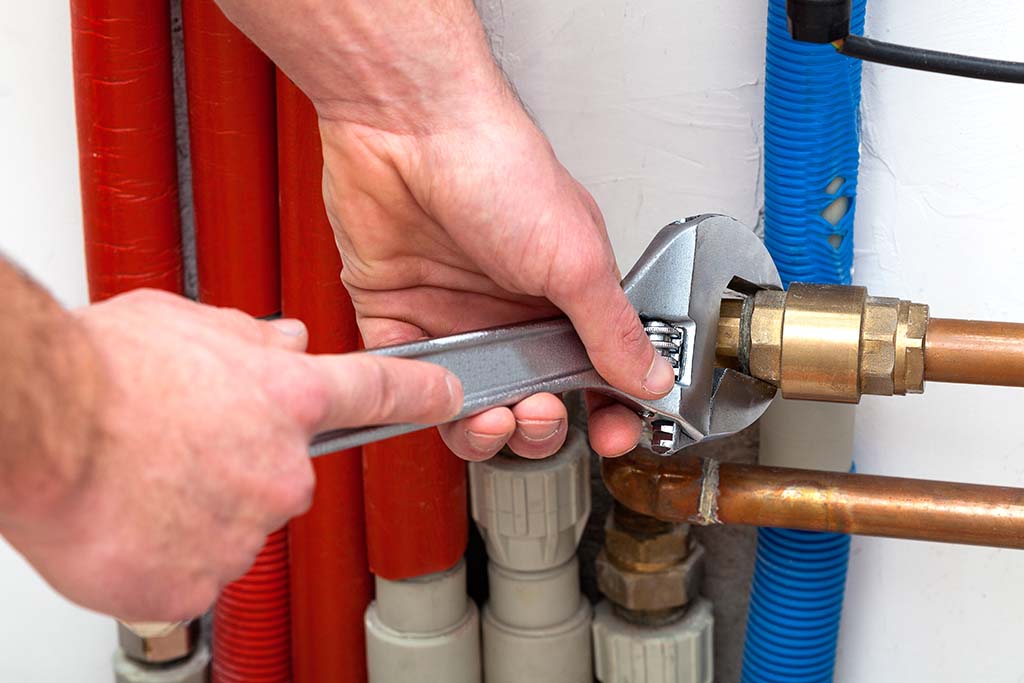Handy Bathroom Plumbing Guidelines for New Homeowners
Handy Bathroom Plumbing Guidelines for New Homeowners
Blog Article
Just how do you feel in regards to General Plumbing Tips for New Homeowners?

For brand-new home owners, understanding and preserving washroom pipes can save both time and money by protecting against expensive concerns down the line. Here are some important restroom plumbing suggestions to aid you keep everything running smoothly.
Plan For Winter
Protect your pipelines from cold during cold weather by insulating pipelines in unheated areas like cellars, attic rooms, and garages. During extreme chilly, allow cold water drip from faucets served by subjected pipelines to aid prevent cold.
Set Up Normal Maintenance
Take into consideration organizing annual inspections with a certified plumbing. They can find issues that you could miss out on, such as concealed leaks or deterioration on pipelines and fixtures. Normal upkeep assists prolong the life of your pipes system and can prevent emergencies.
Familiarize Yourself with the Main Shut-Off Valve
Knowing where the main water shut-off valve lies in your house is essential. This permits you to quickly shut off the supply of water in case of significant leakages or during plumbing emergencies, stopping substantial water damages.
On A Regular Basis Evaluate for Leakages
Small leakages can bring about huge problems. On a regular basis inspect under sinks, around toilets, and near pipes fixtures for any indicators of leakages. Look for wetness, little drips, or corrosion. Capturing and fixing leakages early can prevent more severe damage and save water.
Preserve Your Hot Water Heater
Guarantee your hot water heater is readied to a proper temperature (typically around 120 levels Fahrenheit) to stop hot and lower power use. Flush the tank every year to get rid of sediment accumulation, which can lower the efficiency and lifespan of your heating unit.
Upgrade Your Fixtures
If your home has older fixtures, think about updating to a lot more reliable versions. Modern commodes, showerheads, and taps are created to utilize less water while offering great stress, which can considerably minimize your water expense and environmental footprint.
Beware with Do It Yourself Pipes Services
While it's alluring to handle all home repair work on your own, be cautious with plumbing. Some issues could call for professional knowledge, particularly if they involve major water lines or drain fixings. Employing a specialist can occasionally be more economical than DIY, especially if it avoids additional damage.
Don't Ignore Slow Drains Pipes
If your sink or tub is draining slowly, it's often an indicator of an obstruction developing. Addressing this very early can prevent a complete clog. Make use of a bettor or a plumbing technician's snake to clean out particles. Avoid making use of chemical drainpipe cleaners as they can damage your pipelines gradually.
Know What Not to Flush
Toilets are not garbage disposals. Avoid flushing anything other than bathroom tissue and human waste. Items like wipes, womanly hygiene items, and cotton bud need to be disposed of in the garbage to stop blockages and drain backups.
Set Up Strainers in Drains
Place filters in your sink and bathtub drains to capture hair and various other debris prior to they enter your plumbing system. Cleaning up the strainers consistently will assist avoid accumulation and keep water streaming easily.
Conclusion
Understanding and preserving your home's bathroom plumbing can prevent several usual issues. By following these essential tips, you can guarantee your washroom remains practical and efficient, conserving you time and money over time.
Essential Plumbing Tips for Homeowners: Keep Your Pipes Flowing Smoothly
As a homeowner, understanding the basics of your plumbing system can save you time, money, and a lot of headaches. Plumbing issues can range from minor annoyances like dripping faucets to major problems like burst pipes that cause significant damage. This guide provides essential tips to help you maintain your plumbing system and tackle common issues.
Understanding Your Plumbing System
Supply System: Brings fresh water into your home from a municipal source or a well. Drain-Waste-Vent System: Removes wastewater and vents sewer gases outside. Fixtures and Appliances: Includes sinks, toilets, showers, dishwashers, and washing machines. Basic Maintenance Tips
Regular Inspections: Periodically check for leaks, corrosion, and other signs of wear and tear. Look under sinks, around toilets, and near water heaters. Know Your Main Shut-Off Valve: In case of a major leak, you’ll need to shut off the water quickly. Ensure everyone in your household knows where the main shut-off valve is located. Prevent Frozen Pipes: In cold climates, insulate exposed pipes and let faucets drip during extreme cold to prevent freezing. Use Strainers: Install strainers in sinks and tubs to catch hair, food particles, and other debris that can cause clogs. Common Plumbing Issues and Solutions
Clogged Drains:
Prevention: Avoid pouring grease down the drain and use drain screens to catch debris. DIY Fix: Use a plunger or a plumbing snake to clear minor clogs. For stubborn clogs, a mixture of baking soda and vinegar can sometimes help. Leaky Faucets:
Prevention: Replace washers and seals regularly. DIY Fix: Turn off the water supply, disassemble the faucet, and replace worn parts.

Find Out More Report this page